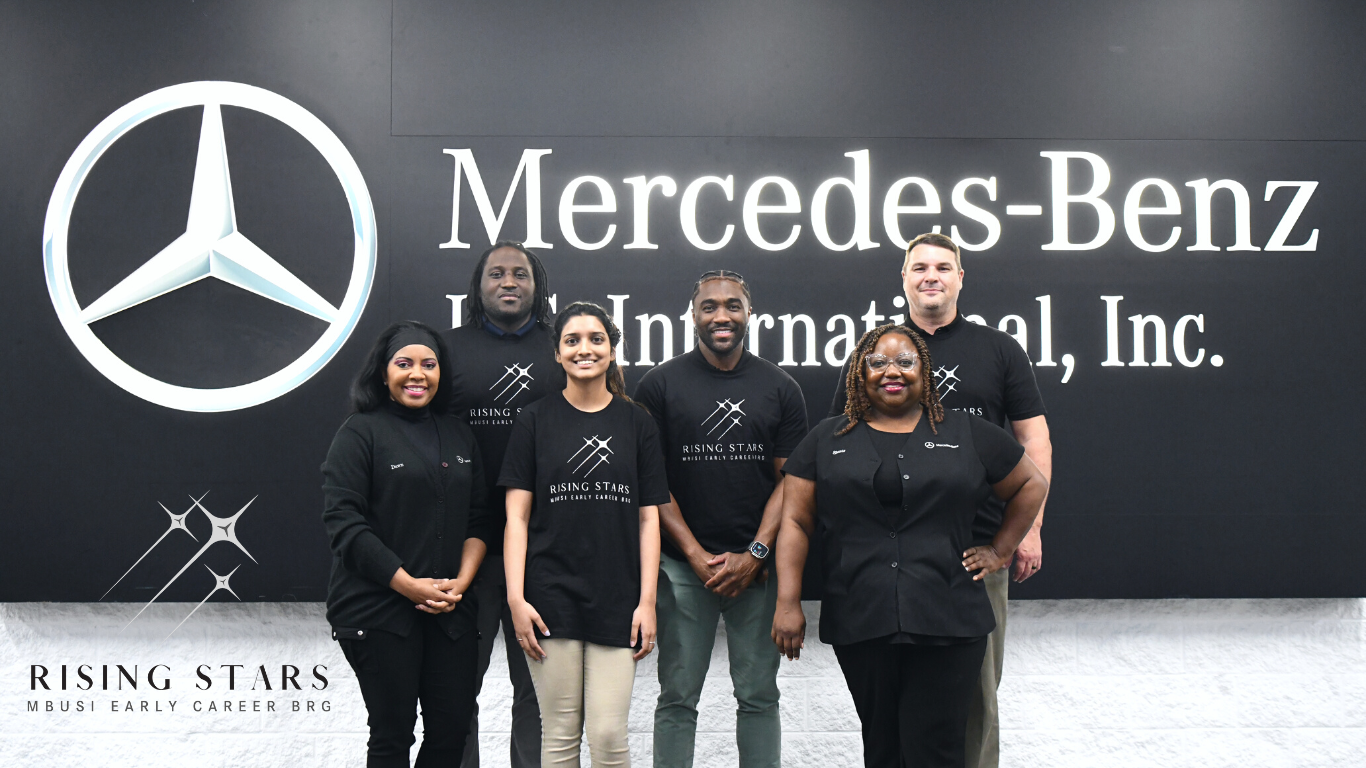
The mission of Rising Stars Early Career Business Resource Group is to create a culture of inclusion where Team Members of any age come together to network, grow personally and professionally, and build bridges in a cross-cultural environment and community.
Interested in getting involved? — Click here to become a member of Rising Stars
Framework of Workplace Generations
From Traditionalists to Gen Z, the chart below breaks down the timeline and characteristics of the fine generations in the workforce. Use your birth year to see which generation you identity as.
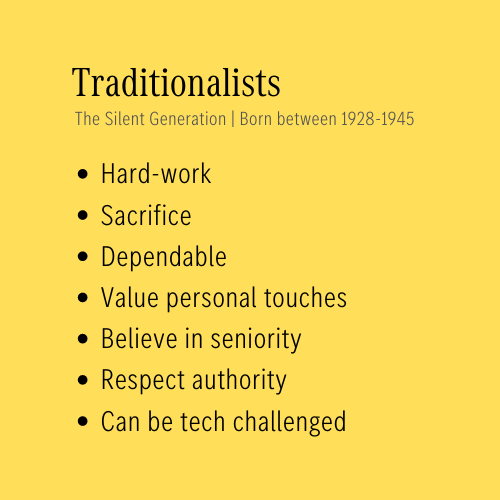
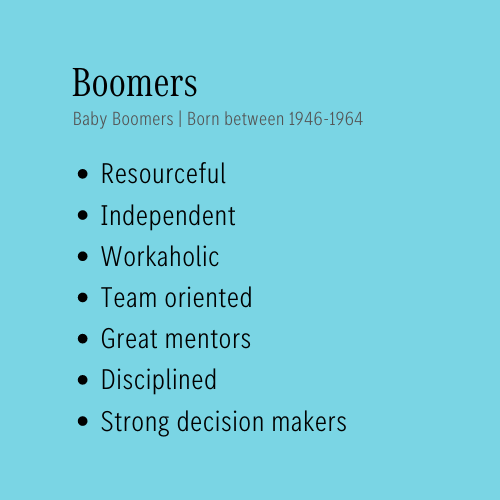
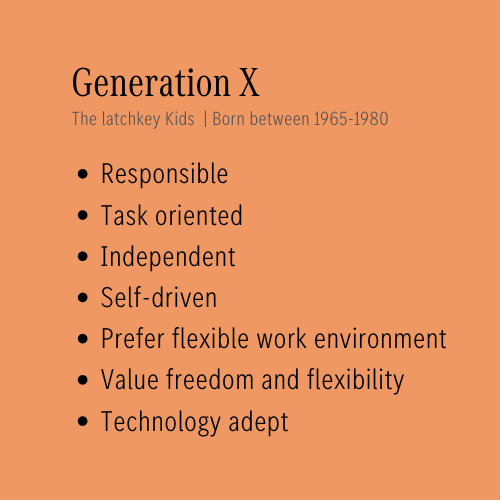
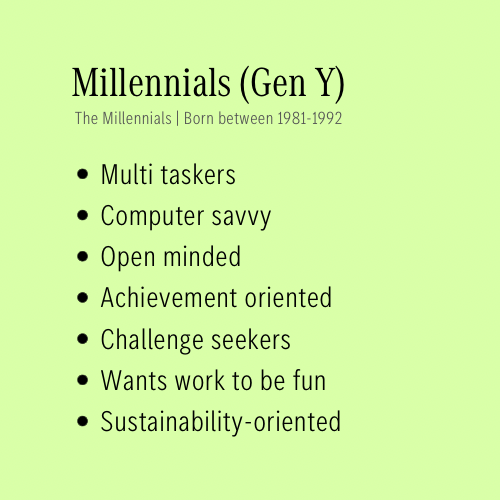
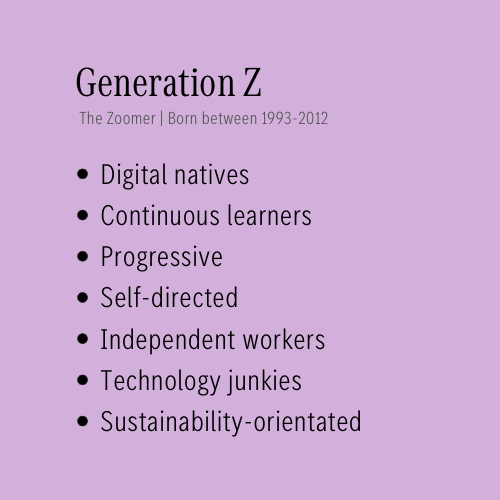
Think you know your generations? Test your knowledge of generational diversity by clicking here to take our quiz and get the chance to win a Starbucks gift card.
Further your understanding of Workplace Generations
Age is often an overlooked dimension of diversity. However, research suggests teams with generational differences in the workplace are more productive. Multigenerational Team Members work better together when they understand the different experiences and reference points.
Below are some descriptions of the five generations in our workplace, including their values, strengths, work habits, and human connection preferences. We can all learn from each generation in our workplace culture.
Traditionalists
These Team Members (TMs) comprise a small portion of our current workforce. This generation has a lot of experience. In their formative years, they were impacted by war and economic strife. Traditionalists joined the workforce under traditional hierarchical structures, which engrained the importance of seniority, respect, and rules. This generation viewed work as the first priority and family second. Tend to be loyal to the company and managers.
Human Connection: They may be more productive if they can engage in person with peers.
Baby Boomers
Overall, Baby Boomers make up a large portion of the U.S. population. Baby Boomers often are hard-working Team Members, dedicated to their jobs and loyal to the company.
They may have a traditional mindset in the workplace, meaning they often value an established hierarchy of responsibility and authority. They usually do not need constant feedback about their work, but they might like insight into development opportunities that may help them succeed in their role.
TMs from this generation might be willing to take risks to challenge the status quo to help create innovation and inspire teams. They are often motivated to serve in higher-level positions that allow them to teach younger generations about relationship development and communication, making them good mentors.
Human Connection: Prefer face-to-face contact. Boomers are direct in their communication and prefer face-to-face talks. This generation can have a strong dislike for SMS communication.
Generation X
The generation is known to be independent and most often values work-life balance. Preferences include family first, careers, friendly work environment. This generation continually seeks efficiency and innovation in the workplace and their personal lives while respecting the autonomy to make choices and create relationships with mentors. This generation may be skeptical of current procedures and question the status quo, making them take risks that can lead to progress and innovation.
Human connection: They prefer email and 1:1 conversations. Not averse to texting compared to other generations.
Millennials
Millennials grew up in the age of technological advances. These TMs seek meaningful work to grow and use their creative skills. They are technologically savvy and use technology to make their work more efficient and generate a long-lasting impact for their team. Values family, friends, and work-life balance. Often are results-oriented and may help older generations integrate new technology at work to improve efficiency. At times not afraid to challenge authority or the status quo to devise innovative solutions to workplace challenges.
Human connection: Prefer texting to a face-to-face conversation (when polled, 75% would opt to text-only). Most use smartphones as the primary device for internet connectivity.
Generation Z
This generation is broad, innovative thinkers typically adapted to rising technological shifts and often have a global mindset. Generation Z generally prioritizes authenticity, truth, and connectivity in their relationships, and they may expect it from managers. Generation Z – TMs grew up when many things used or relied on technology, making them more adaptive to change. Often prefers a flexible work environment, clear directions, and transparency at work. Value flexible working hours and workplaces that value diversity and social responsibility.
Human connection: Most comfortable using social media to speak. Surprisingly matching Boomers, face-to-face communication is most desired.